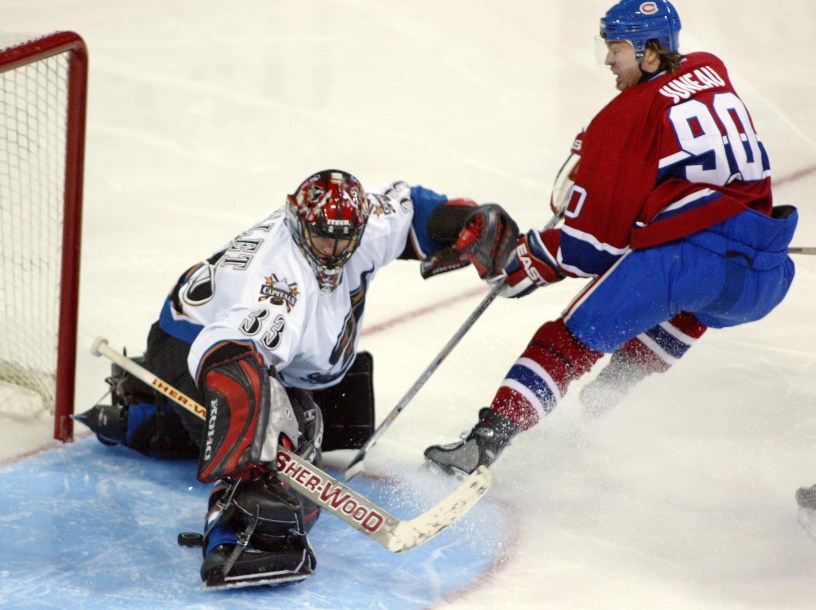All About Joé Juneau
Meet Your 2010 Assistant Chef de Mission for Canada
Hometown: Pont-Rouge, Quebec
Born: January 5, 1968
Joé Juneau is an ice hockey star. In 1991, the native of Pont-Rouge, Quebec postponed a confirmed trip to the National Hockey League so he could play on Canada’s national team. Clutching a new degree in aeronautical engineering, Juneau suited up for Team Canada and his impact was immediate.
In 60 exhibition games, Juneau scored 69 points – but only a prelude to the Olympic tournament in 1992. At the Olympic Winter Games that year in Albertville, France, Juneau led a team composed of amateur players. Canada won a silver medal and not only did Juneau lead the team in points, he led the entire tournament. In eight games, the centre had six goals and nine assists for 15 points.
In the NHL, Juneau carved a memorable career. In his rookie season of 1992-1993, Juneau scored 102 points as a member of the Boston Bruins. His professional hockey career took him through Washington, Buffalo, Ottawa, Phoenix and Montreal. Juneau played in the Stanley Cup final twice, in 1998 with Washington and in 1999 with Buffalo. Upon retiring in 2004, Juneau had amassed 156 goals and 572 points in 828 career games.
Yet Joé Juneau is more than an ice hockey player and a statistical summary. A certified pilot, he earned an Aeronautical Engineering degree at Rensselaer Polytechnic Institute in Troy, New York in three years, despite the fact that he did not speak English when he arrived at school. It is what he has done of late, though, that is most unique and special.
From Quebec City, Juneau and his family have moved to Kuujjuaq, a town of 2,100 in the northern reaches of Quebec, in the Nunavik region. There, Juneau has created a grassroots hockey program for youth, most of whom are Inuit. At the Kuujjuaq Forum (a rink/community centre) Juneau, while teaching them the finer points of skating, stickhandling, passing and shooting, uses hockey as a tool to educate children about the importance of school education, to prevent criminality throughout Nunavik, and to develop leadership. Over 700 students between five and 18 are enrolled. Through hockey, Juneau is also introducing the children to the importance of a healthy lifestyle and better nutrition.
In 2006, he began work on this unique program. He began it in a region of Canada with very high rates of alcoholism, drug addiction, poverty and suicide. The differences between Kuujjuaq and Quebec City, 1,200 kilometres south, could not be any starker. In this atmosphere Juneau lives and works trying to extol the benefits of education and exercise. For children to stay in his program, they must demonstrate regular attendance, good behaviour and effort at school. Each Friday, Juneau pores over teacher assessment forms to ensure his children are meeting these conditions.
Initially he spent one to two weeks each month in Nunavik, but felt the disconnection when he would leave. In September 2007, Juneau decided to take the step of moving to Kuujjuaq, becoming part of the community, and his program has blossomed to the point that about one-third of eligible children are enrolled. He lives there with girlfriend Elsa Moreau and children Ophélie and Héloïse.




